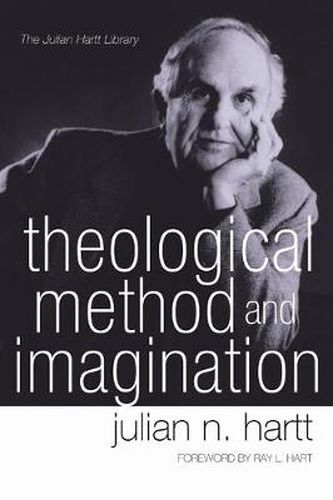Readings Newsletter
Become a Readings Member to make your shopping experience even easier.
Sign in or sign up for free!
You’re not far away from qualifying for FREE standard shipping within Australia
You’ve qualified for FREE standard shipping within Australia
The cart is loading…






This title is printed to order. This book may have been self-published. If so, we cannot guarantee the quality of the content. In the main most books will have gone through the editing process however some may not. We therefore suggest that you be aware of this before ordering this book. If in doubt check either the author or publisher’s details as we are unable to accept any returns unless they are faulty. Please contact us if you have any questions.
What kind of reality can be perceived when the core problems of theology are freed from dependency upon highly technical and arcane ways of thinking and speaking? Writing with the logical clarity and critical acumen for which he is well-known in theological circles, Julian N. Hartt demonstrates the reality of theology’s problems and shows how they can be perceived as part of a divine restiveness in living. Hartt finds the demands of revelation to be most profoundly registered upon the imagination–that power of the spirit by which the shape of things to come is grasped. Sensing a great hunger for fresh approaches to fundamental theological concerns, Hartt presents a boldly original scholarly work. In it the persistent theological puzzles about method are clarified, the elements of that method are described and major historical controversies about method are critiqued. Topics discussed include: beliefs and reasons, knowing and proving God, faith and hope, authority and scripture, revelation and historical evidence. A significant contribution to theology, this book shows that theological method entails describing the ways in which faith makes sense. Doing this, it speaks about incorrigible beliefs, those convictions so fundamental that without them the very sense of life and world would disappear. Sensing that society has begun to think of theological matters as mere inventions of theologians, Hartt seeks to return to those fundamental questions that are the concrete situation of the serious-minded Christian in the contemporary world.
$9.00 standard shipping within Australia
FREE standard shipping within Australia for orders over $100.00
Express & International shipping calculated at checkout
This title is printed to order. This book may have been self-published. If so, we cannot guarantee the quality of the content. In the main most books will have gone through the editing process however some may not. We therefore suggest that you be aware of this before ordering this book. If in doubt check either the author or publisher’s details as we are unable to accept any returns unless they are faulty. Please contact us if you have any questions.
What kind of reality can be perceived when the core problems of theology are freed from dependency upon highly technical and arcane ways of thinking and speaking? Writing with the logical clarity and critical acumen for which he is well-known in theological circles, Julian N. Hartt demonstrates the reality of theology’s problems and shows how they can be perceived as part of a divine restiveness in living. Hartt finds the demands of revelation to be most profoundly registered upon the imagination–that power of the spirit by which the shape of things to come is grasped. Sensing a great hunger for fresh approaches to fundamental theological concerns, Hartt presents a boldly original scholarly work. In it the persistent theological puzzles about method are clarified, the elements of that method are described and major historical controversies about method are critiqued. Topics discussed include: beliefs and reasons, knowing and proving God, faith and hope, authority and scripture, revelation and historical evidence. A significant contribution to theology, this book shows that theological method entails describing the ways in which faith makes sense. Doing this, it speaks about incorrigible beliefs, those convictions so fundamental that without them the very sense of life and world would disappear. Sensing that society has begun to think of theological matters as mere inventions of theologians, Hartt seeks to return to those fundamental questions that are the concrete situation of the serious-minded Christian in the contemporary world.